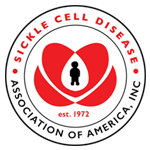The Sickle Cell Disease Association of America (SCDAA) partnered with Phi Beta Sigma Fraternity Inc. to increase awareness about sickle cell disease and raise funds to support education about the negative effects of sickle cell disease on the physical, economic and social well-being of individuals with the condition.
“SCDAA is excited to again partner with the Phi Beta Sigma Fraternity, and we are honored to have been chosen as a recipient of their donations,” said Regina Hartfield, president and CEO of SCDAA. “Phi Beta Sigma is deeply committed to serving and supporting the community, as is SCDAA. Their support will go far to benefit those living with sickle cell disease.”
The partnership will support the SCDAA and sickle cell community through raising funds, mobilizing blood and bone marrow drives and collaborating to educate the community about sickle cell disease and sickle cell trait. Phi Beta Sigma Fraternity will encourage chapters to collaborate with their local American Red Cross to host blood drives and the Be The Match Registry to host bone marrow drives. Chapters will conduct screenings to help adolescents and adults detect sickle cell and organize fundraisers for sickle cell research, education and children’s services.
“SCDAA is proud to continue its partnership with Phi Beta Sigma in raising awareness about sickle cell disease,” said Thomas L. Johnson, chair of the SCDAA board of directors. “Its dedication to the mission of SCDAA is exemplary of providing support and assistance for those in need.”
Phi Beta Sigma Fraternity was founded at Howard University in Washington, D.C., in 1914 to exemplify the ideals of brotherhood scholarship and deliver services to the general community. The fraternity’s motto is “Culture for Service and Service for Humanity.”
“This disease effects one out of every 365 Black or African-American births and one out of every 16,300 Hispanic-American births,” said Chris Rey, president of the fraternity. “Phi Beta Sigma is dedicated to doing all we can to change these grim numbers. We are excited to continue our partnership with SCDAA to continue to fight for a cure.”
